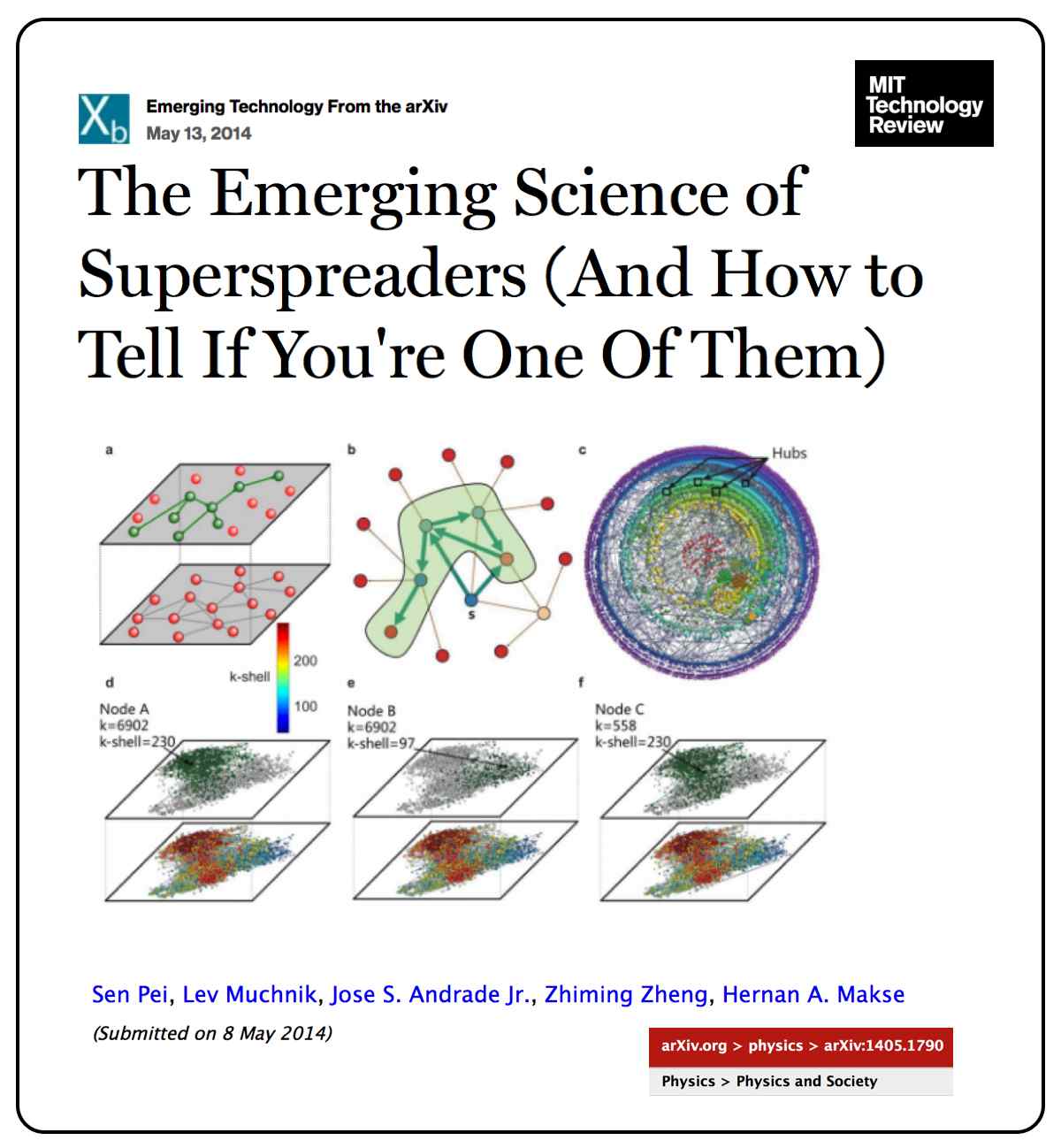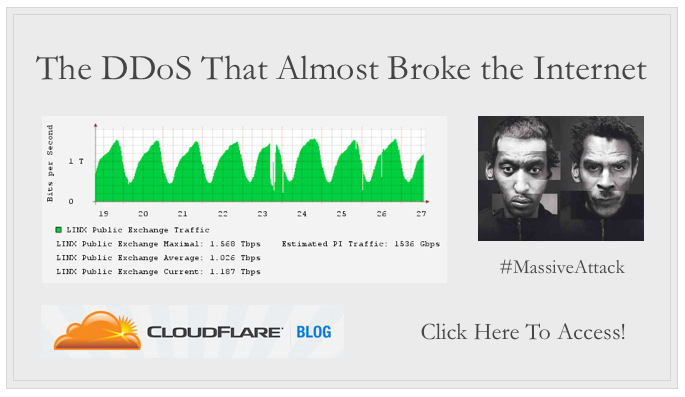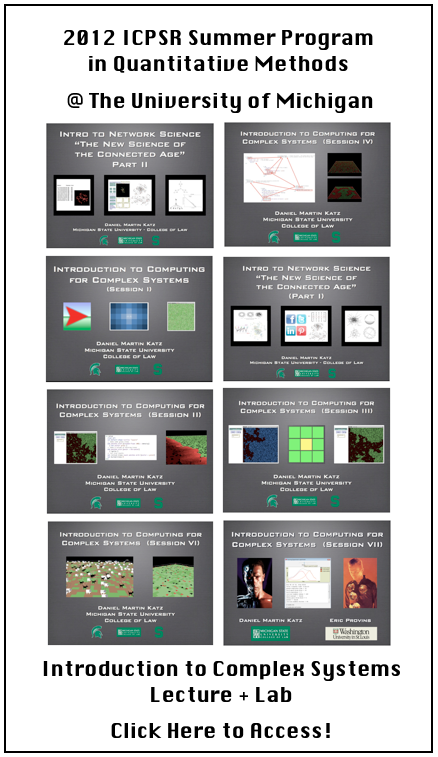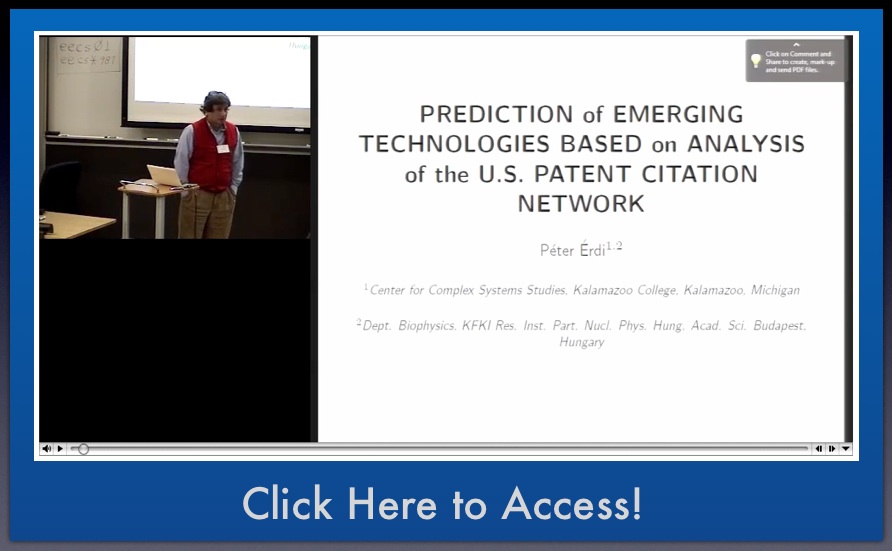Tag: complex systems
Measuring the Complexity of the Law: The United States Code (By Daniel Martin Katz & Michael J. Bommarito)
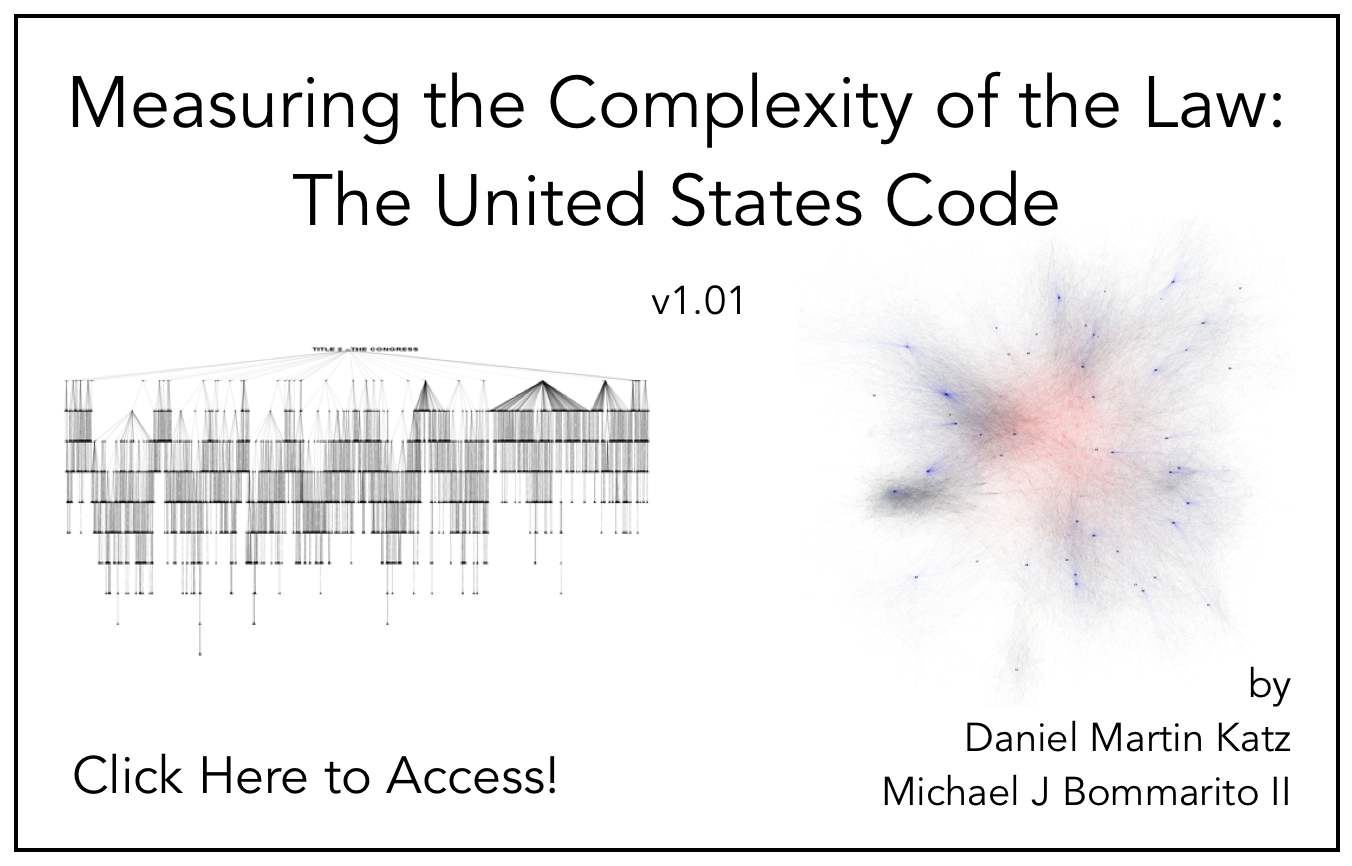 From our abstract: “Einstein’s razor, a corollary of Ockham’s razor, is often paraphrased as follows: make everything as simple as possible, but not simpler. This rule of thumb describes the challenge that designers of a legal system face—to craft simple laws that produce desired ends, but not to pursue simplicity so far as to undermine those ends. Complexity, simplicity’s inverse, taxes cognition and increases the likelihood of suboptimal decisions. In addition, unnecessary legal complexity can drive a misallocation of human capital toward comprehending and complying with legal rules and away from other productive ends.
From our abstract: “Einstein’s razor, a corollary of Ockham’s razor, is often paraphrased as follows: make everything as simple as possible, but not simpler. This rule of thumb describes the challenge that designers of a legal system face—to craft simple laws that produce desired ends, but not to pursue simplicity so far as to undermine those ends. Complexity, simplicity’s inverse, taxes cognition and increases the likelihood of suboptimal decisions. In addition, unnecessary legal complexity can drive a misallocation of human capital toward comprehending and complying with legal rules and away from other productive ends.
While many scholars have offered descriptive accounts or theoretical models of legal complexity, empirical research to date has been limited to simple measures of size, such as the number of pages in a bill. No extant research rigorously applies a meaningful model to real data. As a consequence, we have no reliable means to determine whether a new bill, regulation, order, or precedent substantially effects legal complexity.
In this paper, we address this need by developing a proposed empirical framework for measuring relative legal complexity. This framework is based on “knowledge acquisition,” an approach at the intersection of psychology and computer science, which can take into account the structure, language, and interdependence of law. We then demonstrate the descriptive value of this framework by applying it to the U.S. Code’s Titles, scoring and ranking them by their relative complexity. Our framework is flexible, intuitive, and transparent, and we offer this approach as a first step in developing a practical methodology for assessing legal complexity.”
This is a draft version so we invite your comments (katzd@law.msu.edu) and (michael.
UPDATE: Paper was named “Download of the Week” by Legal Theory Blog.
Complex Systems Models in the Social Science @ UMich ICPSR Summer Program in Quantitative Methods
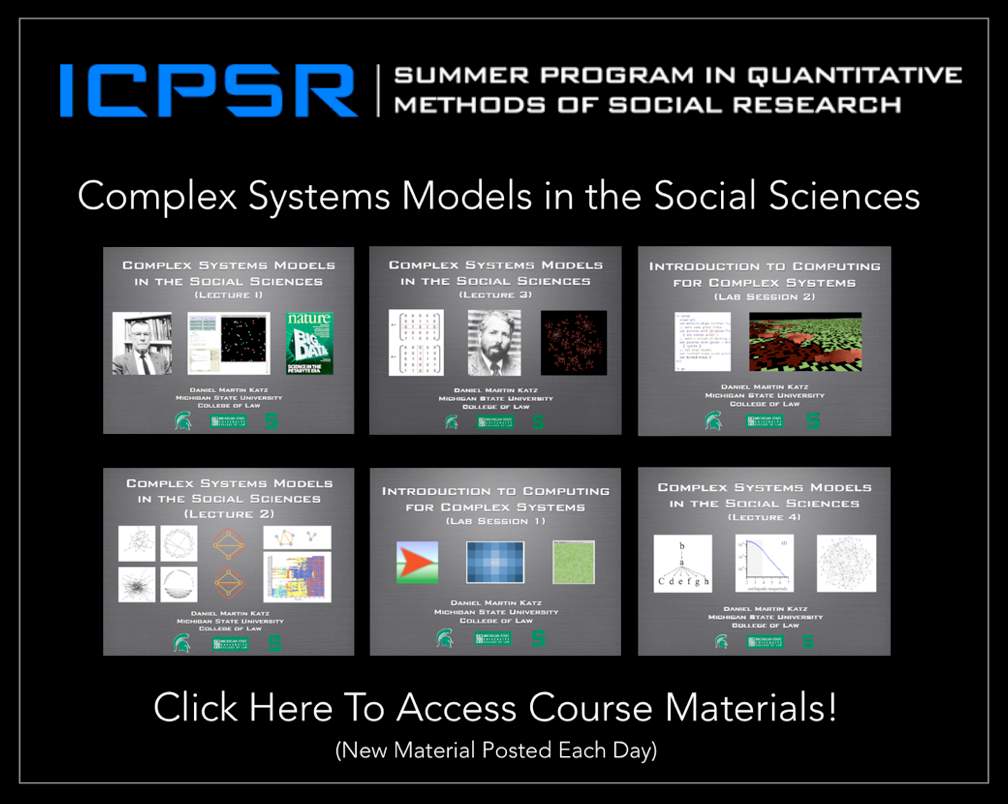 This week and next week I have the pleasure of teaching “Complex Systems Models in the Social Sciences” here at the University of Michigan ICPSR Summer Program in Quantitative Methods. The field of complex systems is very diverse and it is difficult to do complete justice to the range of scholarship conducted under this umbrella. However, we strive to cover the canonical topics such as computational game theory and computational modeling, network science, natural language processing, randomness vs. determinism, diffusion, cascades, emergence, empirical approaches to study complexity (including measurement), social epidemiology, non-linear dynamics, etc.
This week and next week I have the pleasure of teaching “Complex Systems Models in the Social Sciences” here at the University of Michigan ICPSR Summer Program in Quantitative Methods. The field of complex systems is very diverse and it is difficult to do complete justice to the range of scholarship conducted under this umbrella. However, we strive to cover the canonical topics such as computational game theory and computational modeling, network science, natural language processing, randomness vs. determinism, diffusion, cascades, emergence, empirical approaches to study complexity (including measurement), social epidemiology, non-linear dynamics, etc.
How the Science of Swarms Can Help Us Fight Cancer and Predict the Future {via Wired}
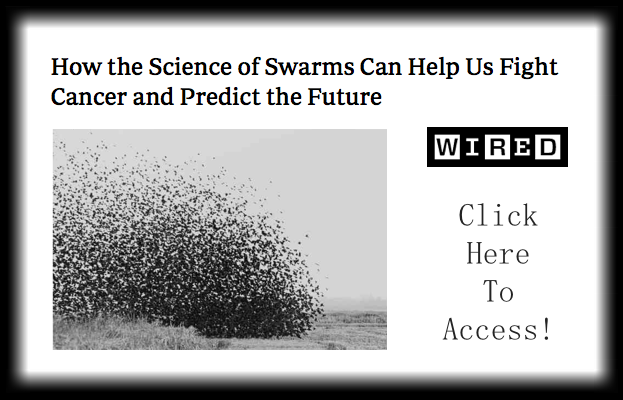
We cover the topic of Swarms at great length in the “Complex Systems in the Social Sciences Course” that I co-teach at the University of Michigan ICPSR Summer Program in Quantitative Methods. If you are interested in learning more here are some of the slides from last year. The 2013 Edition of the Course Begins in July in Ann Arbor!
Complex Sociotechnical Systems: The Case for a New Field of Study { via MIT World }
The Machine and the Garden {via the NYT}
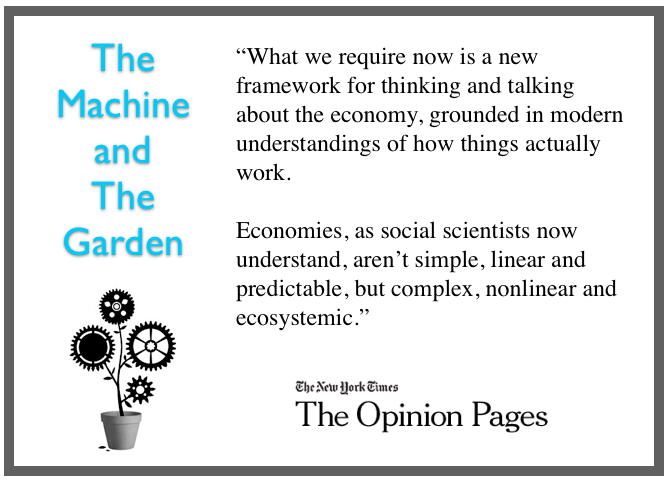 Speaking of non-linear, complex, dynamic, ecosystemic …. the 2012 Edition of the ICPSR Summer Program – Complex Systems Course Starts on Monday! Click Here to Check it out! (currently the 2011 edition is up but this will be reset on Monday for the all new 2012 Course). For everyone in the class – I will see you on Monday.
Speaking of non-linear, complex, dynamic, ecosystemic …. the 2012 Edition of the ICPSR Summer Program – Complex Systems Course Starts on Monday! Click Here to Check it out! (currently the 2011 edition is up but this will be reset on Monday for the all new 2012 Course). For everyone in the class – I will see you on Monday.
You Had Me at Hello: How Phrasing Affects Memorability [via arXiv.org]
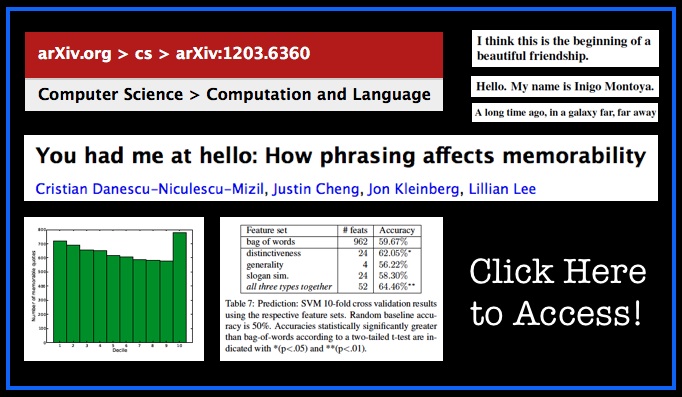 From the Abstract: “Understanding the ways in which information achieves widespread public awareness is a research question of significant interest. We consider whether, and how, the way in which the information is phrased — the choice of words and sentence structure — can affect this process. To this end, we develop an analysis framework and build a corpus of movie quotes, annotated with memorability information, in which we are able to control for both the speaker and the setting of the quotes. We find significant differences between memorable and non-memorable quotes in several key dimensions. One is lexical distinctiveness: in aggregate, memorable quotes use less common word choices, but at the same time are built upon a scaffolding of common syntactic patterns; another is that memorable quotes tend to be more general in ways that make them easy to apply in new contexts. We also show how the concept of “memorable language” can be extended across domains.”
From the Abstract: “Understanding the ways in which information achieves widespread public awareness is a research question of significant interest. We consider whether, and how, the way in which the information is phrased — the choice of words and sentence structure — can affect this process. To this end, we develop an analysis framework and build a corpus of movie quotes, annotated with memorability information, in which we are able to control for both the speaker and the setting of the quotes. We find significant differences between memorable and non-memorable quotes in several key dimensions. One is lexical distinctiveness: in aggregate, memorable quotes use less common word choices, but at the same time are built upon a scaffolding of common syntactic patterns; another is that memorable quotes tend to be more general in ways that make them easy to apply in new contexts. We also show how the concept of “memorable language” can be extended across domains.”
Prediction of Emerging Technologies Based on Analysis of the U.S. Patent Citation Network [ via Peter Erdi and UMich EECS ]
Dr. Peter Erdi is one of the leading scholars studying the path of innovation as revealed through the U.S. Patent Citation network. Above is his most recent talk – Prediction of Emerging Technologies Based on Analysis of the U.S. Patent Citation Network
For some of his additional work please see:
Patent Citation Networks Revisited: Signs of a Twenty-First Century Change?, North Carolina Law Review (2009).
Modeling Innovation by a Kinetic Description of the Patent Citation System, Physica A (2007)
Law and the Science of Networks: An Overview and an Application to the ‘Patent Explosion’, Berkeley Technology Law Journal (2007).
[Note: Load Time for the Video above is a bit slow]
Model Thinking – A Free Online Course with Scott E. Page (Director of UMich Center for Study of Complex Systems)
Starting in the January 2012, Scott E. Page (one of my PhD thesis advisors) will teach Model Thinking (a free online course offered via the consortium that brought you AI Class, Machine Learning, etc.)
Scott and I have previously teamed up to teach Complex Systems @ the ICPSR Summer Methods Program (where I teach the model implementation lab). Over 7,000 people and counting have are already signed up …
Introduction to Computing for Complex Systems – Slides and Other Course Materials from ICPSR 2011
 I am going to bump this post to front of the blog one last time as there has been some interest in this material. It has now been several weeks since we completed the full four week class here at the ICPSR Program in Quantitative Methods. In this course, I (together with my colleagues) highlight the methods of complex systems as well as several environments designed to explore the field. These include Netlogo (agent based models and network models), Nova (system dynamics / ecological modeling) and Pajek (empirical network analysis). In addition, we a variety of advanced topics including:
I am going to bump this post to front of the blog one last time as there has been some interest in this material. It has now been several weeks since we completed the full four week class here at the ICPSR Program in Quantitative Methods. In this course, I (together with my colleagues) highlight the methods of complex systems as well as several environments designed to explore the field. These include Netlogo (agent based models and network models), Nova (system dynamics / ecological modeling) and Pajek (empirical network analysis). In addition, we a variety of advanced topics including:
- (a) Community Detection in Networks
- (b) Computational Linguistics / Natural Language Processing
- (c) Diffusion Models and Mathematical Modeling with Data
- (d) Exponential Random Graph (p*) Models
- (e) Big Data/ Information Retrieval / Webscraping
Although, we do not work with more advanced languages within the course, those who need to conduct complex analysis are directed to alternatives such as R, Python, Java, etc.
Anyway, the slides are designed to be fully self-contained and thus allow for individually paced study of the relevant material. If you work through the slides carefully you should be able to learn the software as well as many of the core principles associated with the science of complex systems. The material should be available online indefinitely. If you have questions, feel free to email me.

